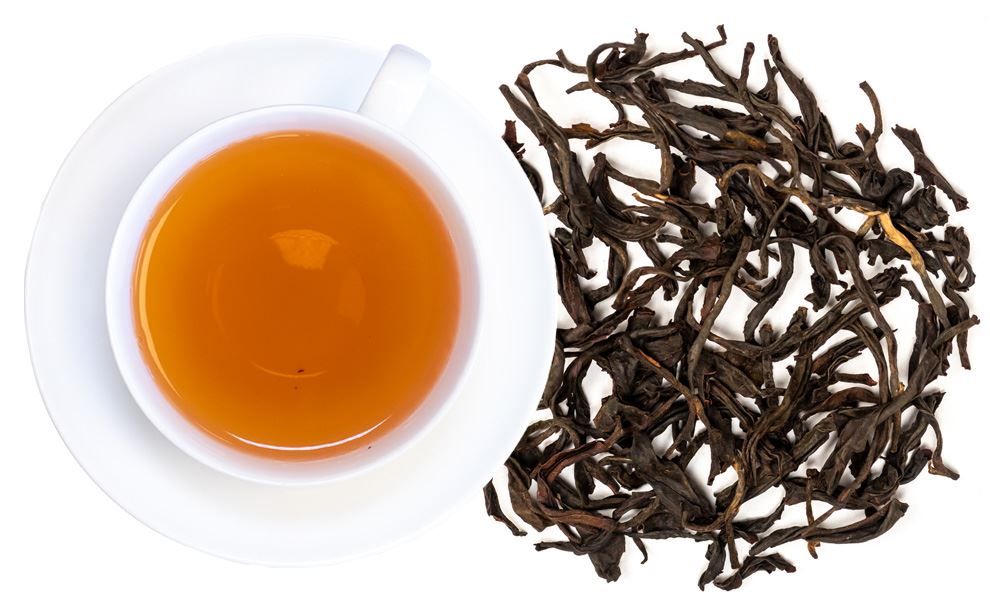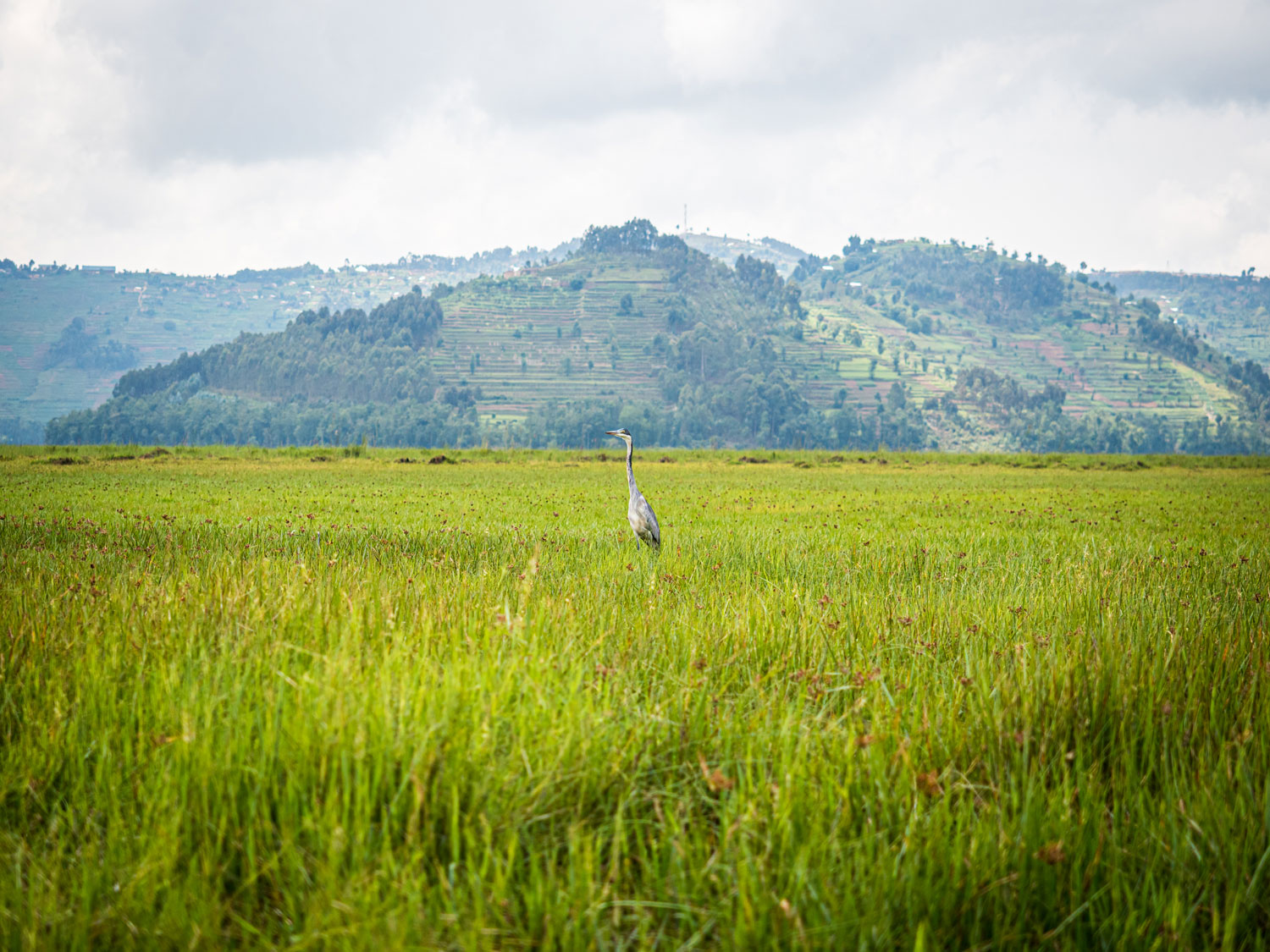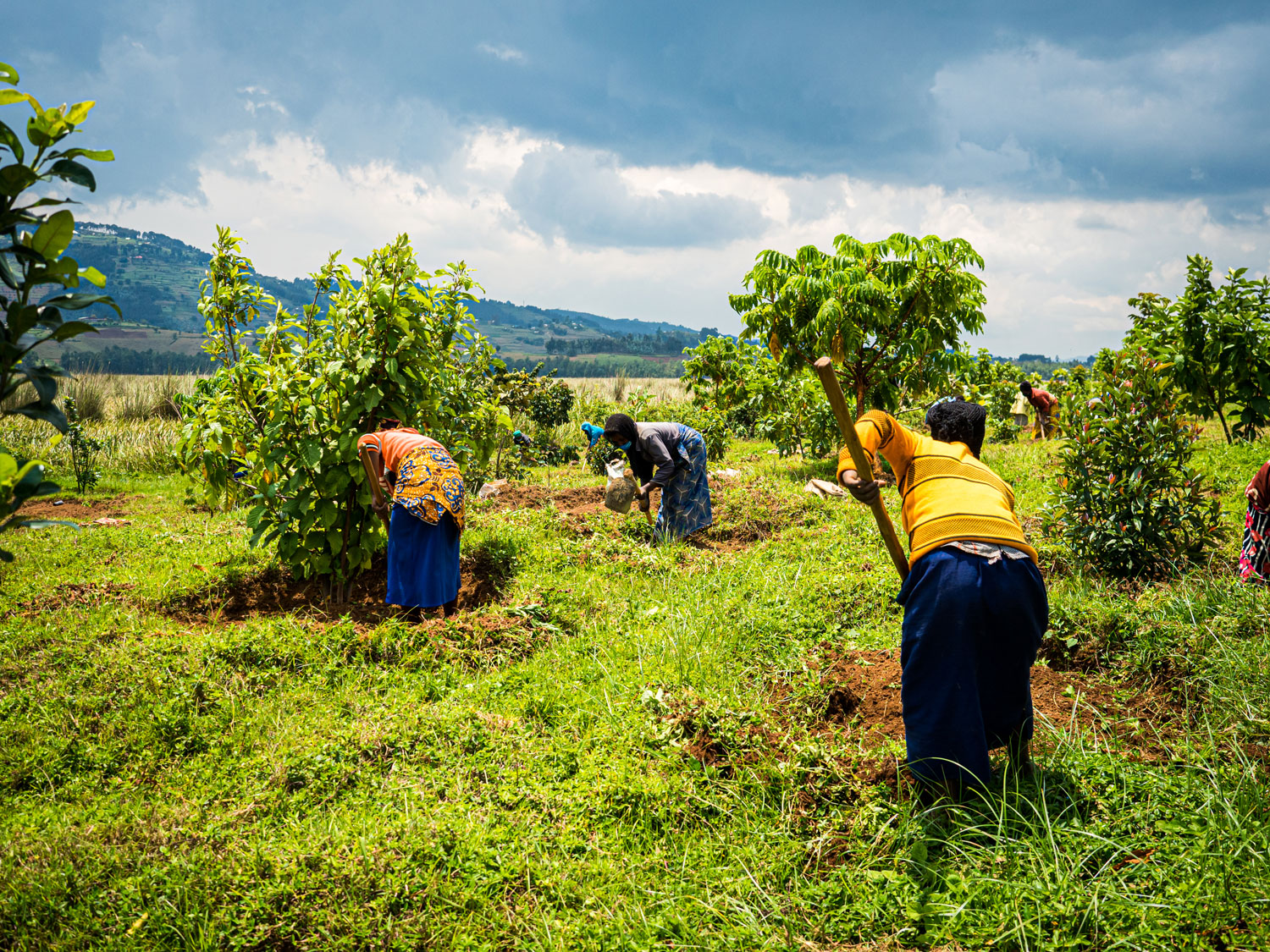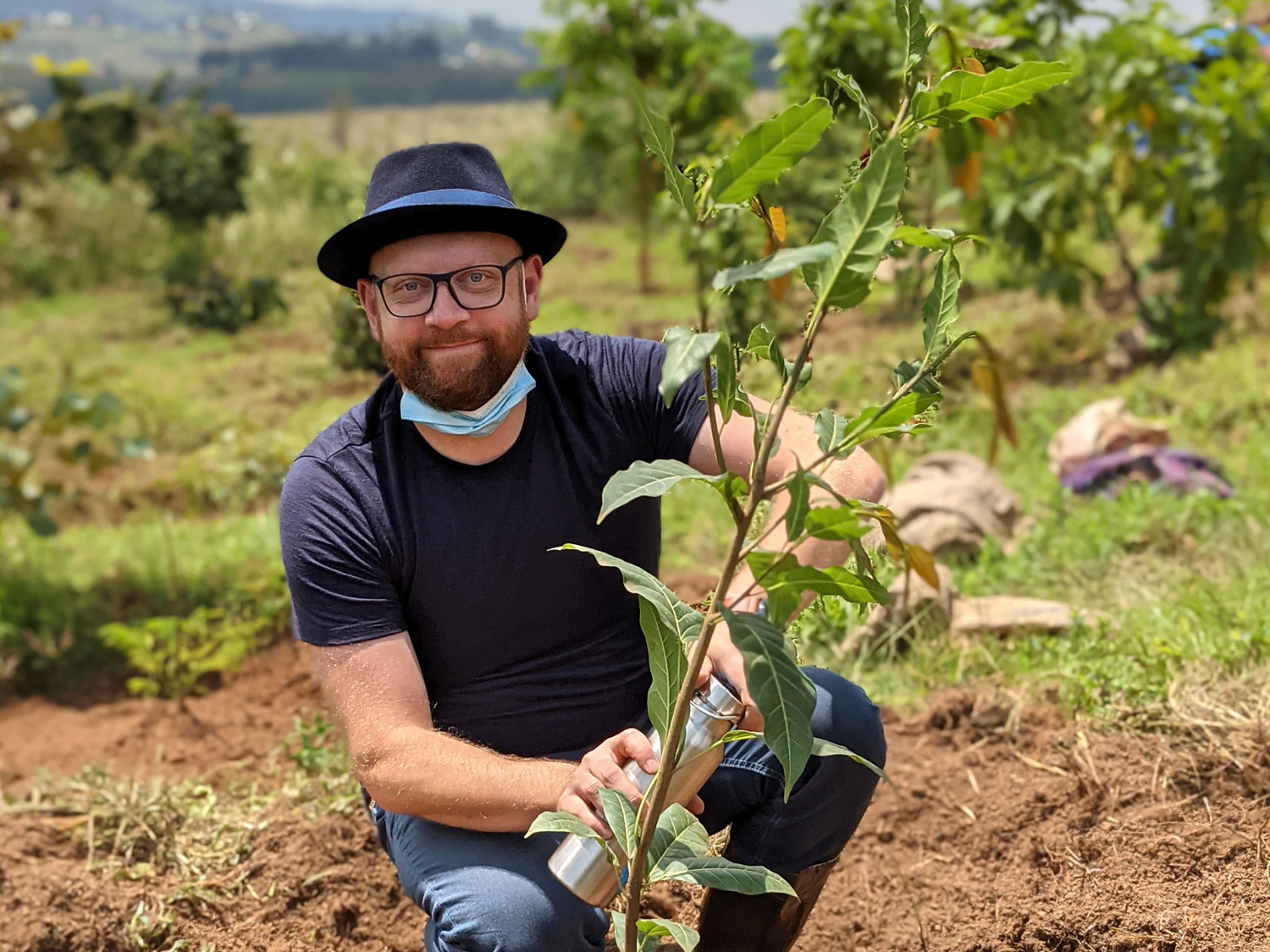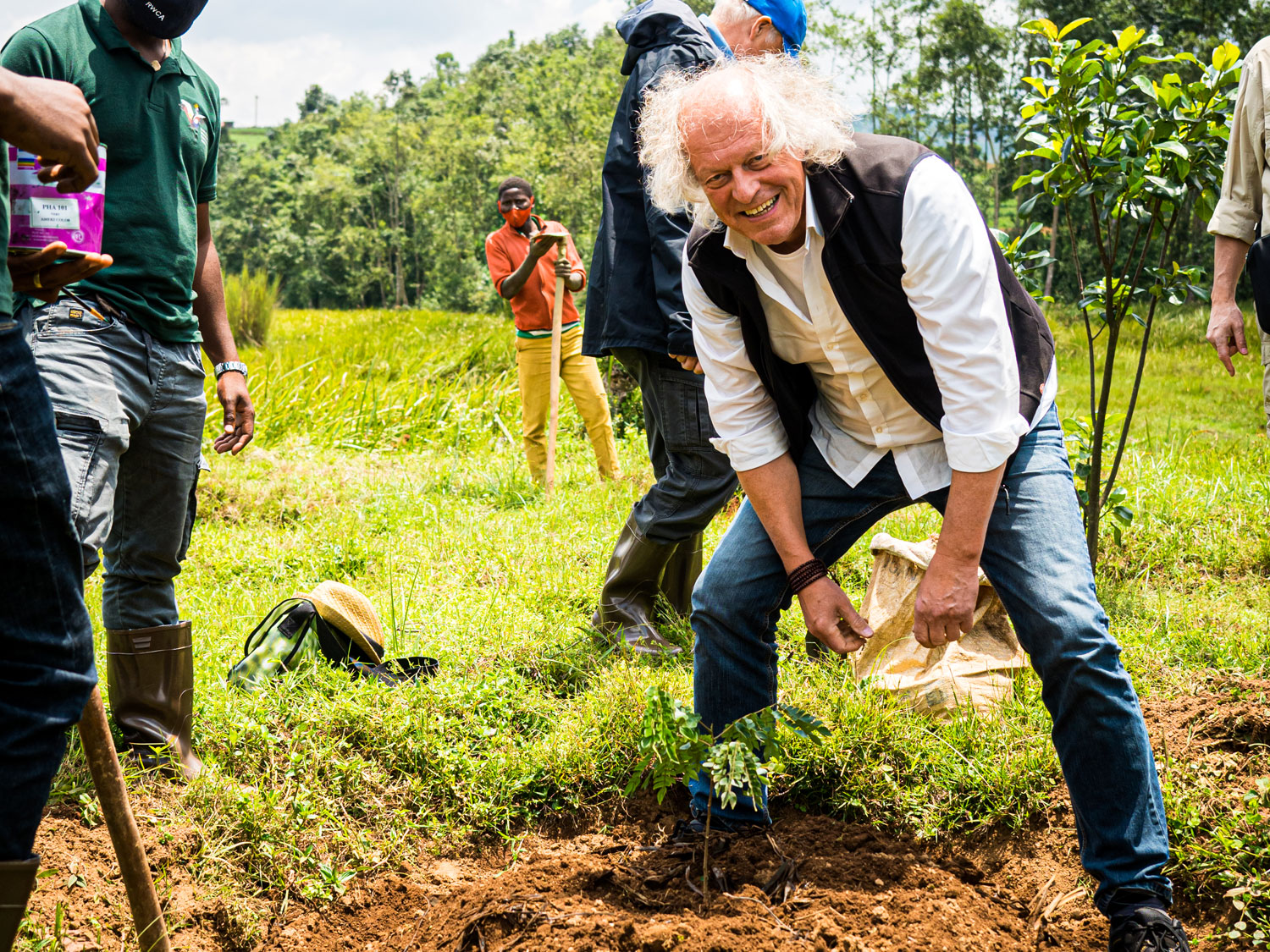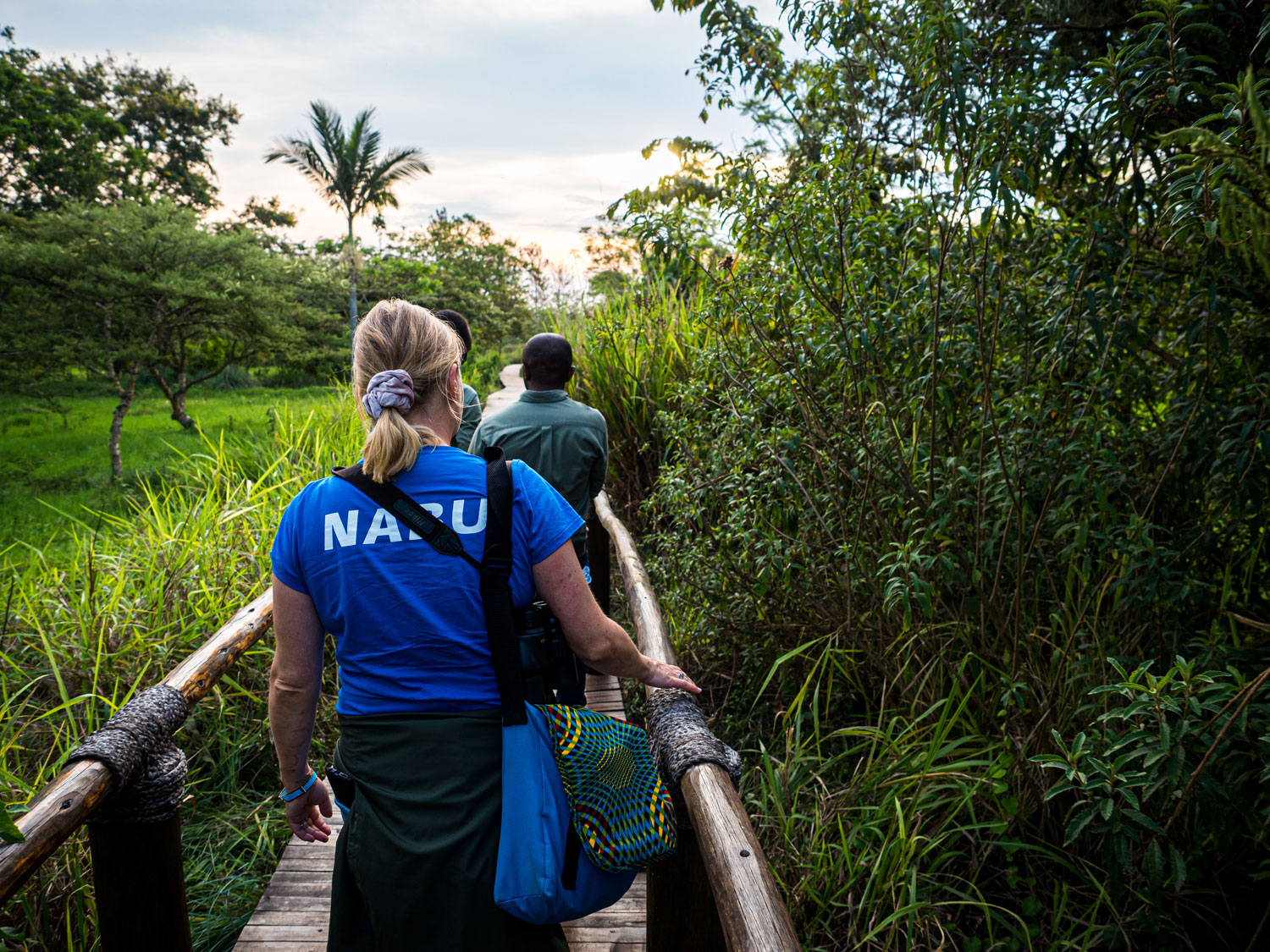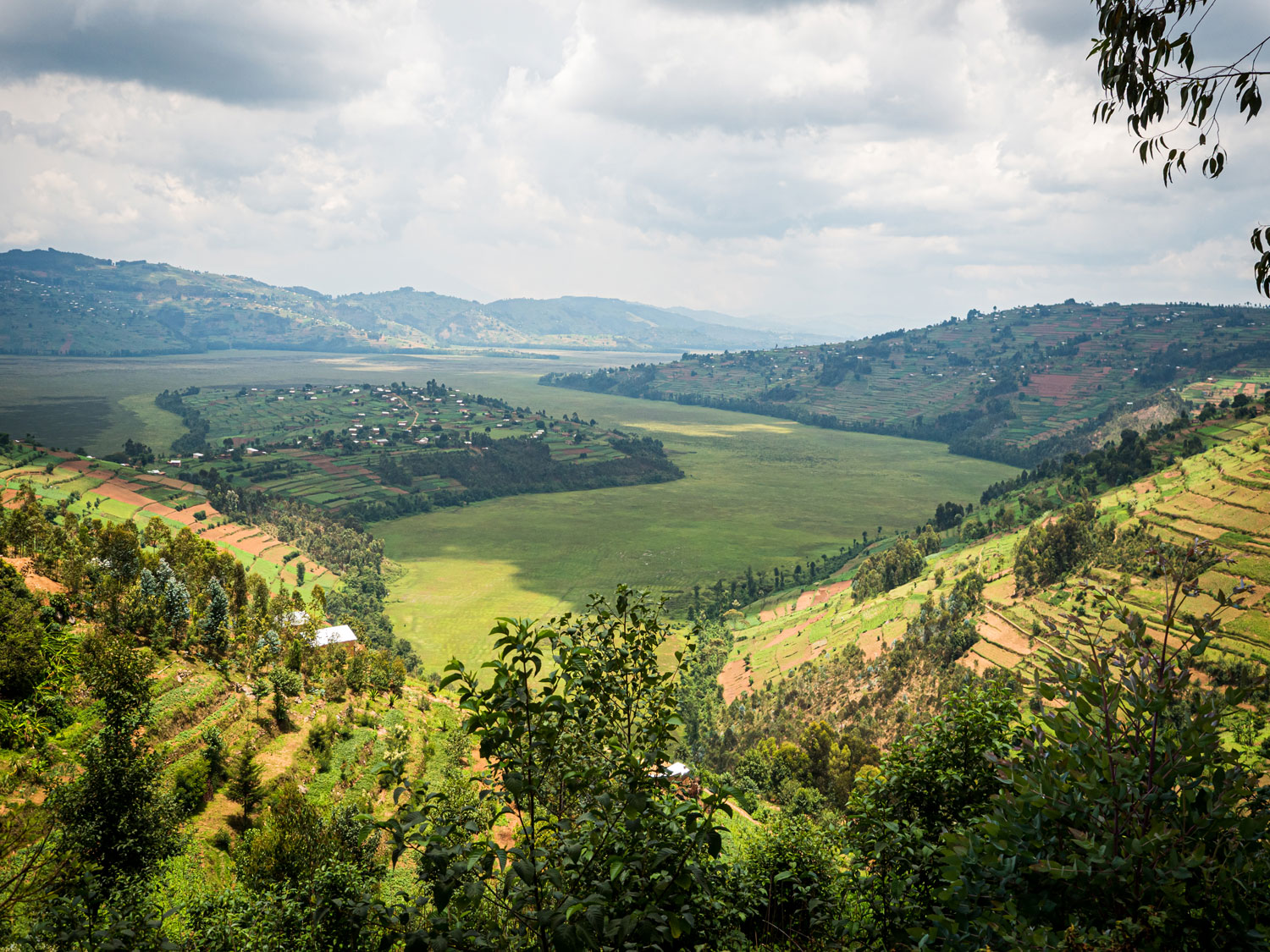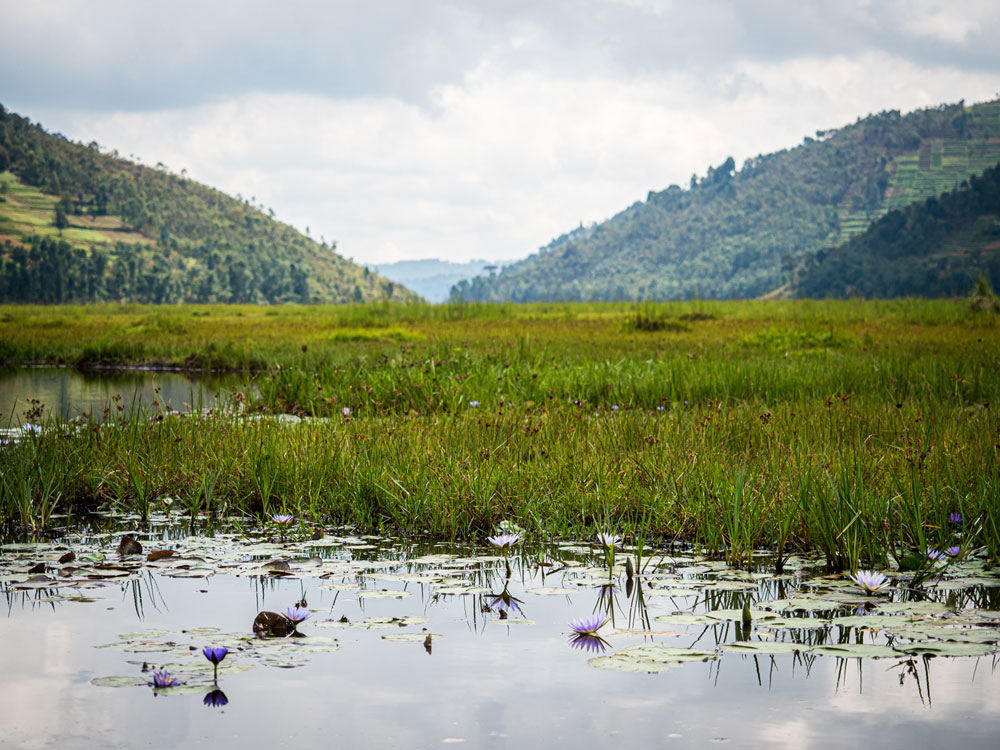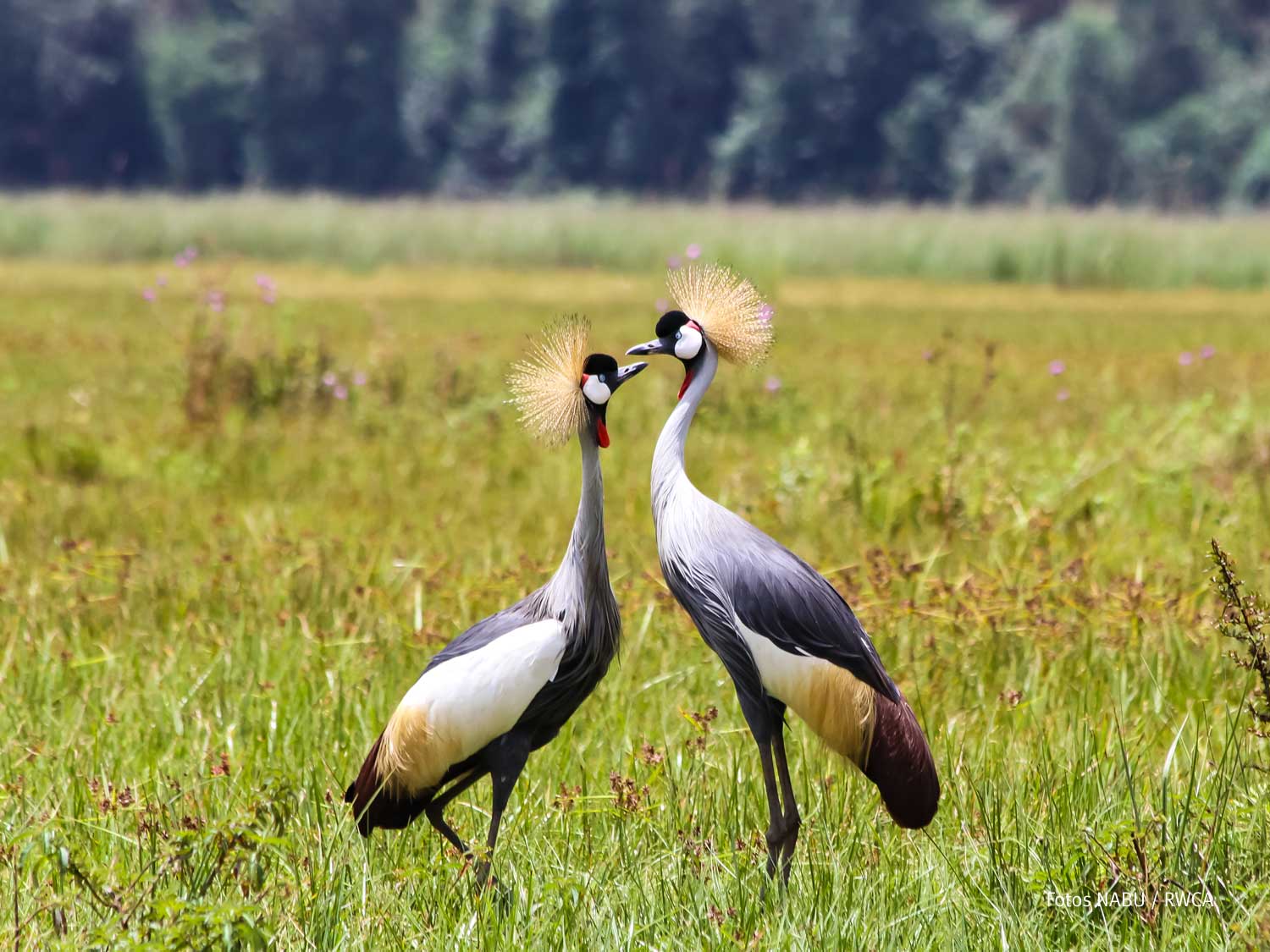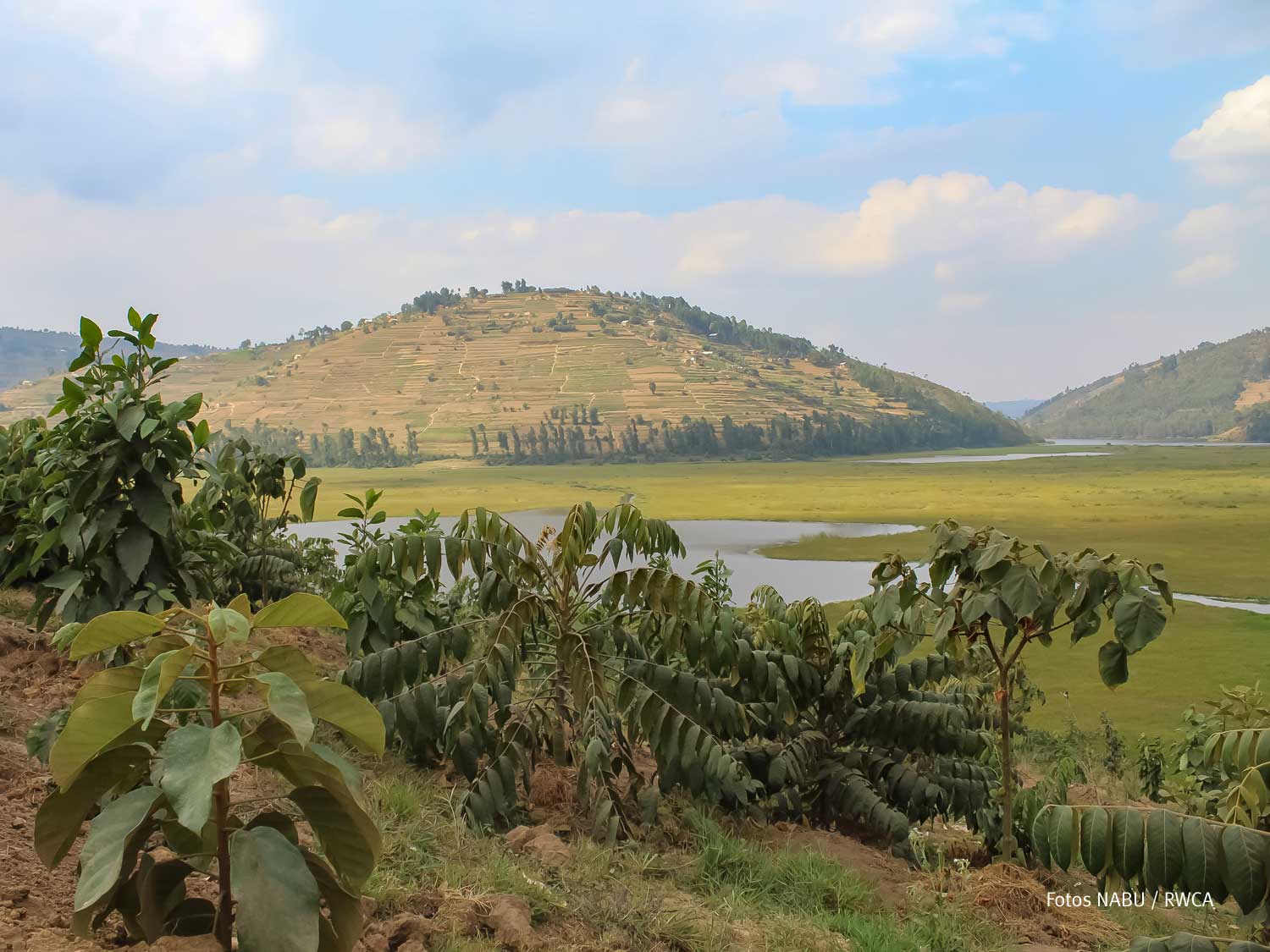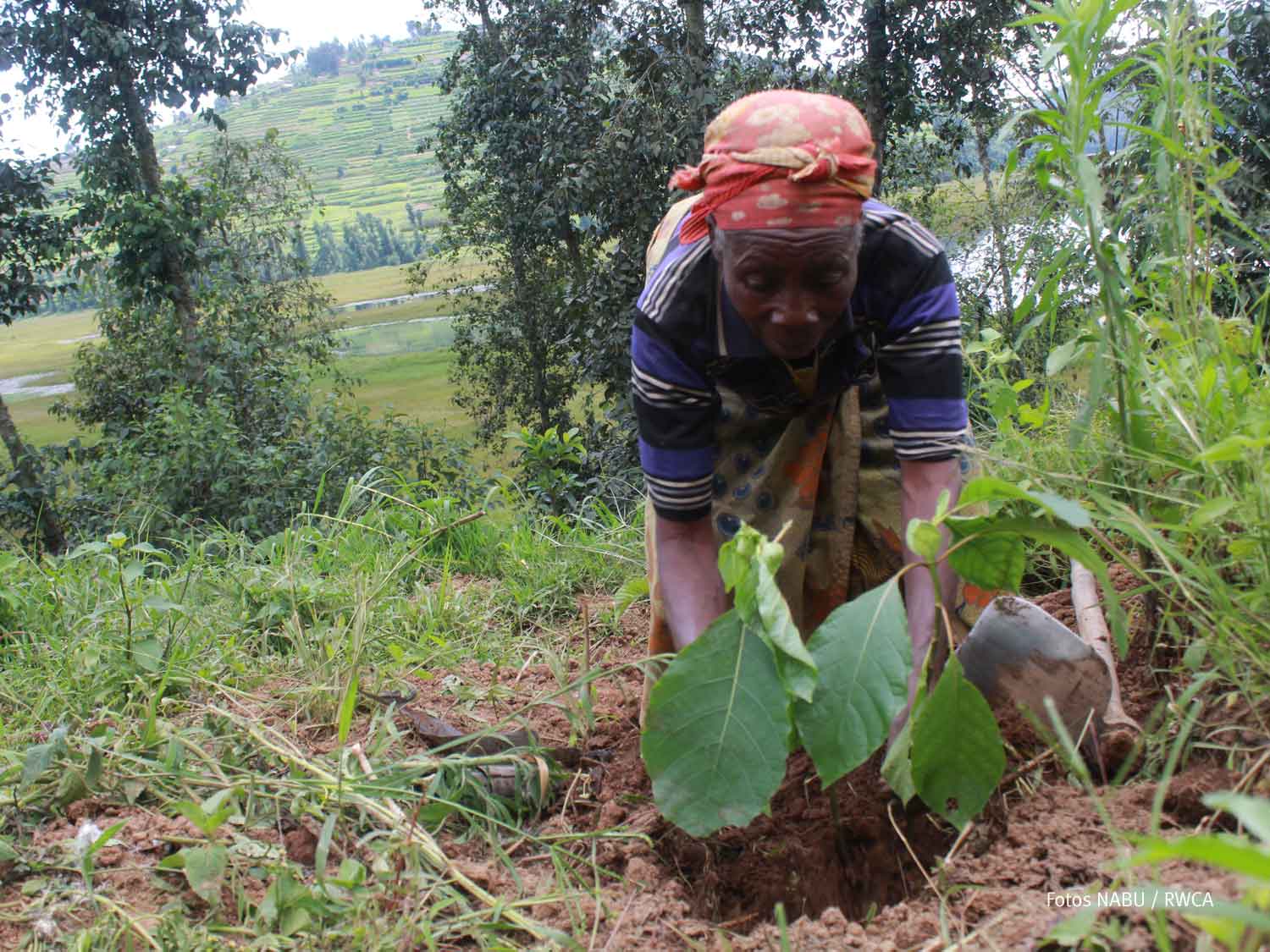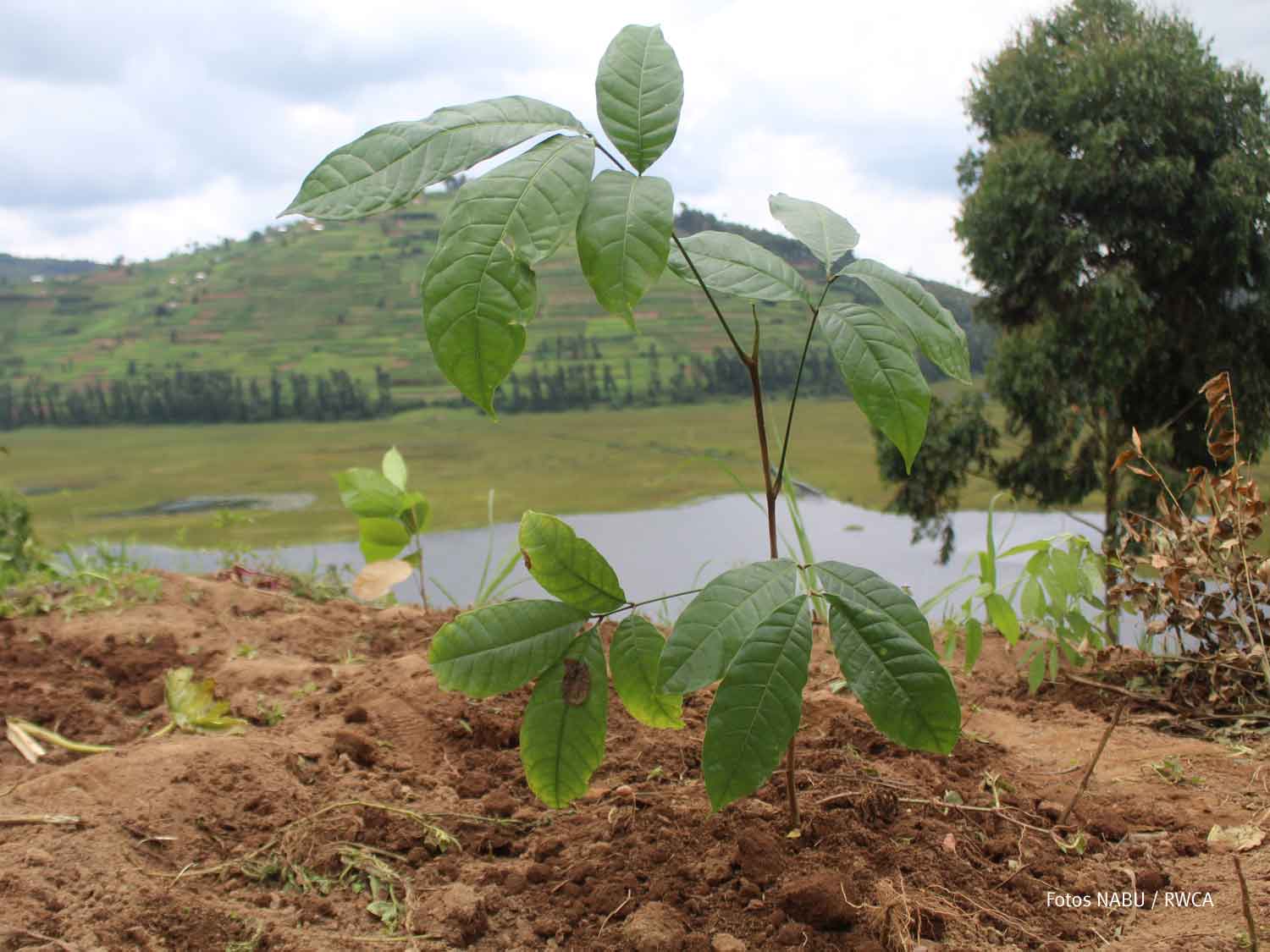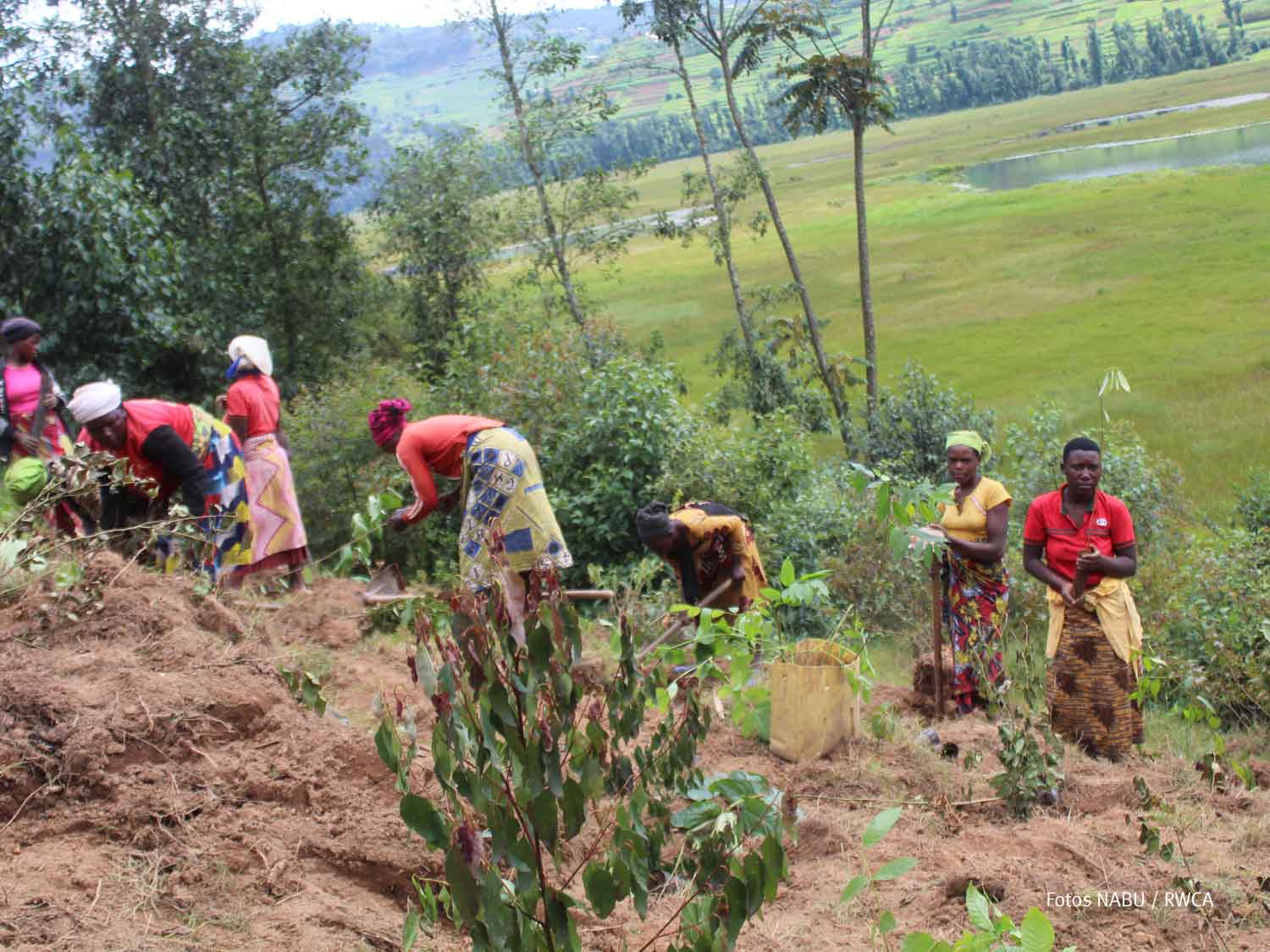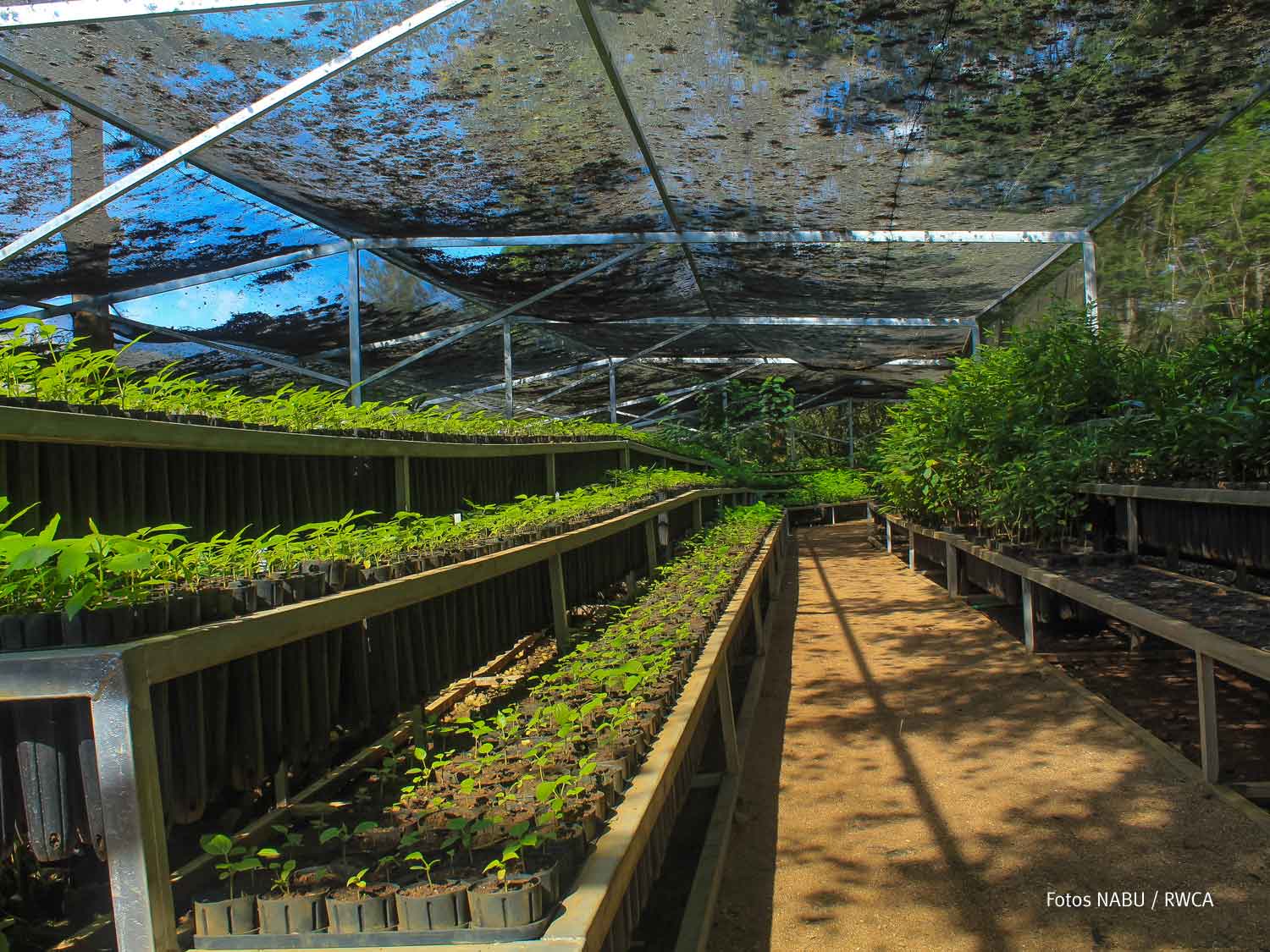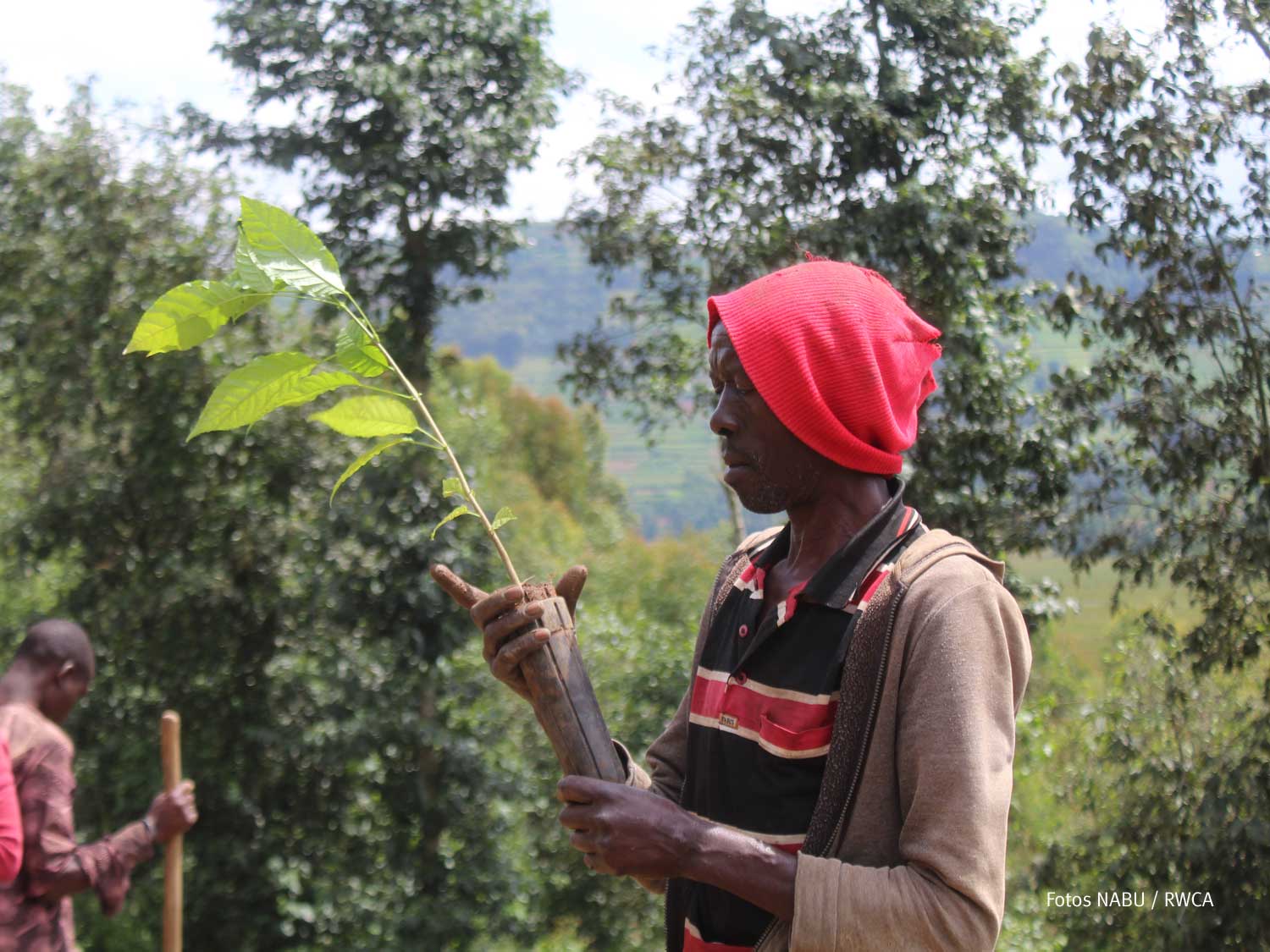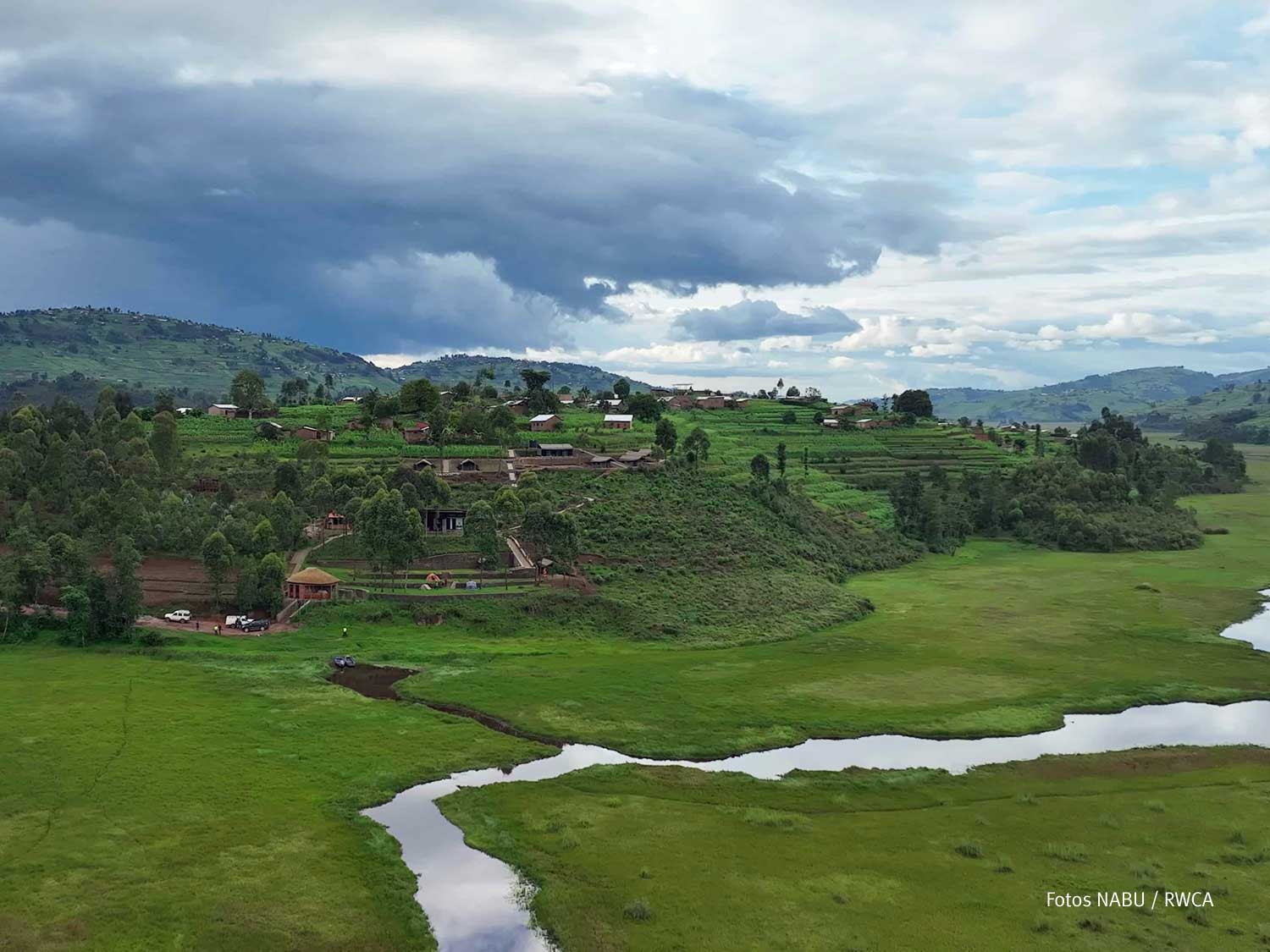Beguiling black tea from the land of a thousand hills
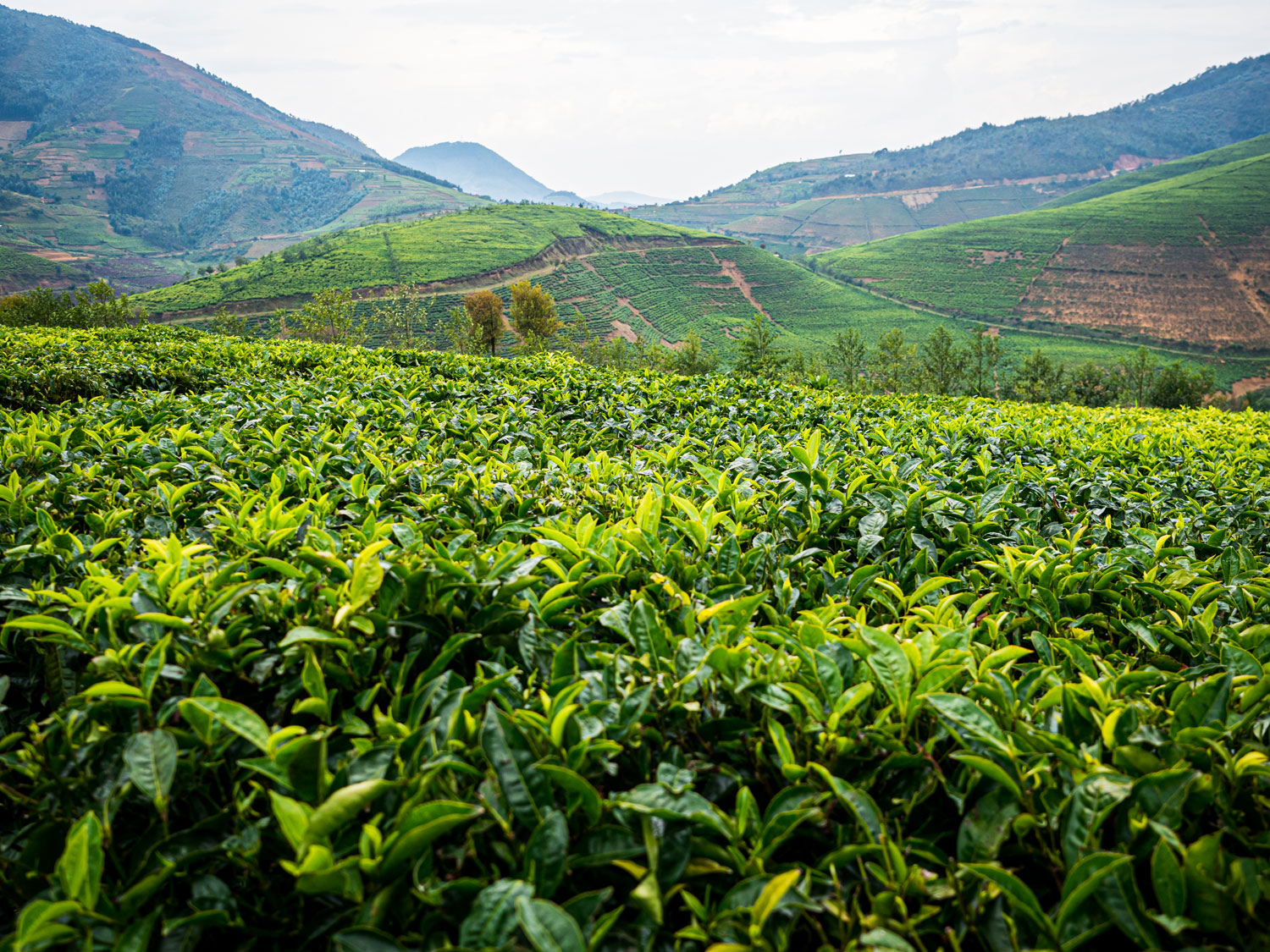
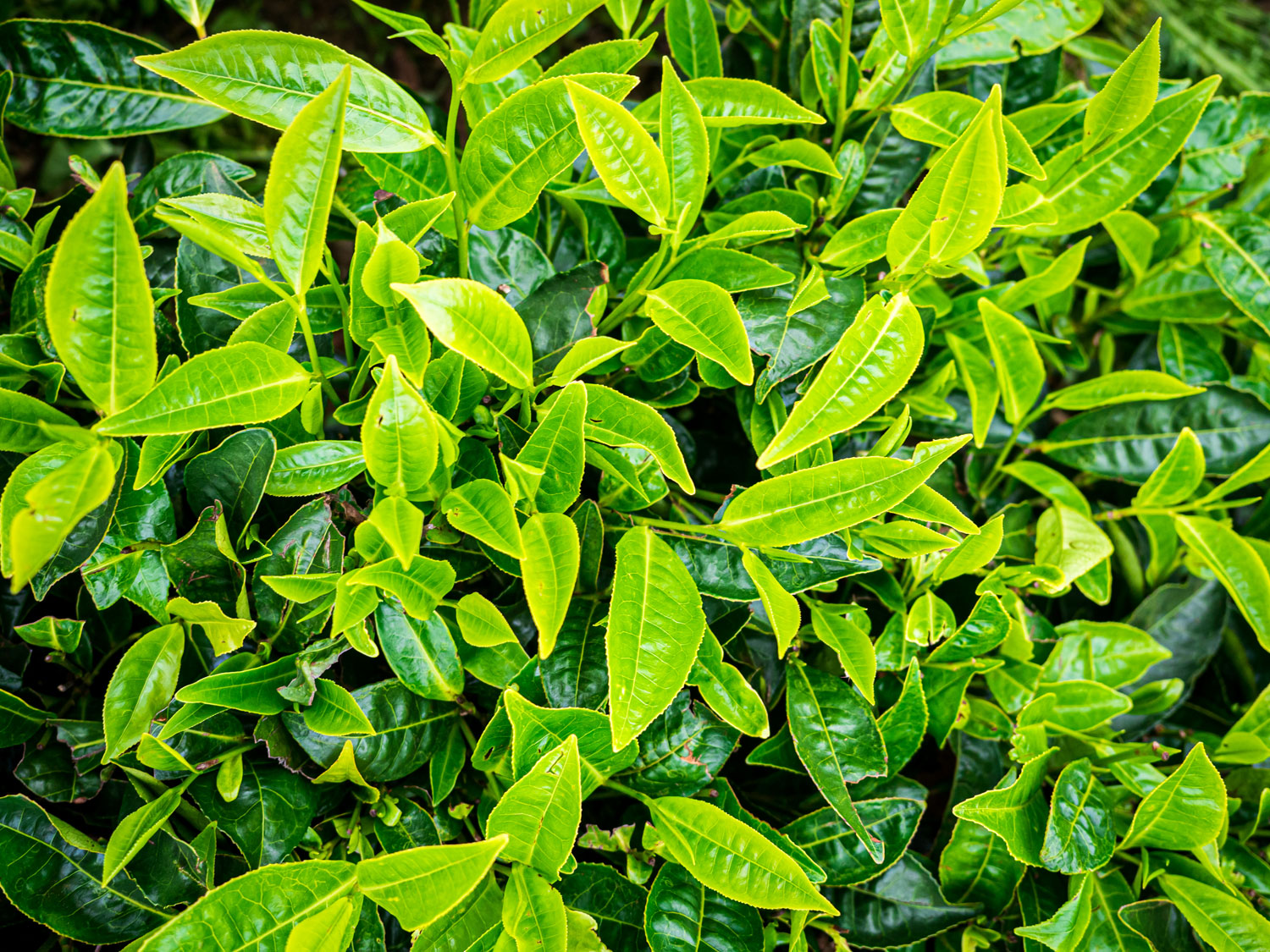
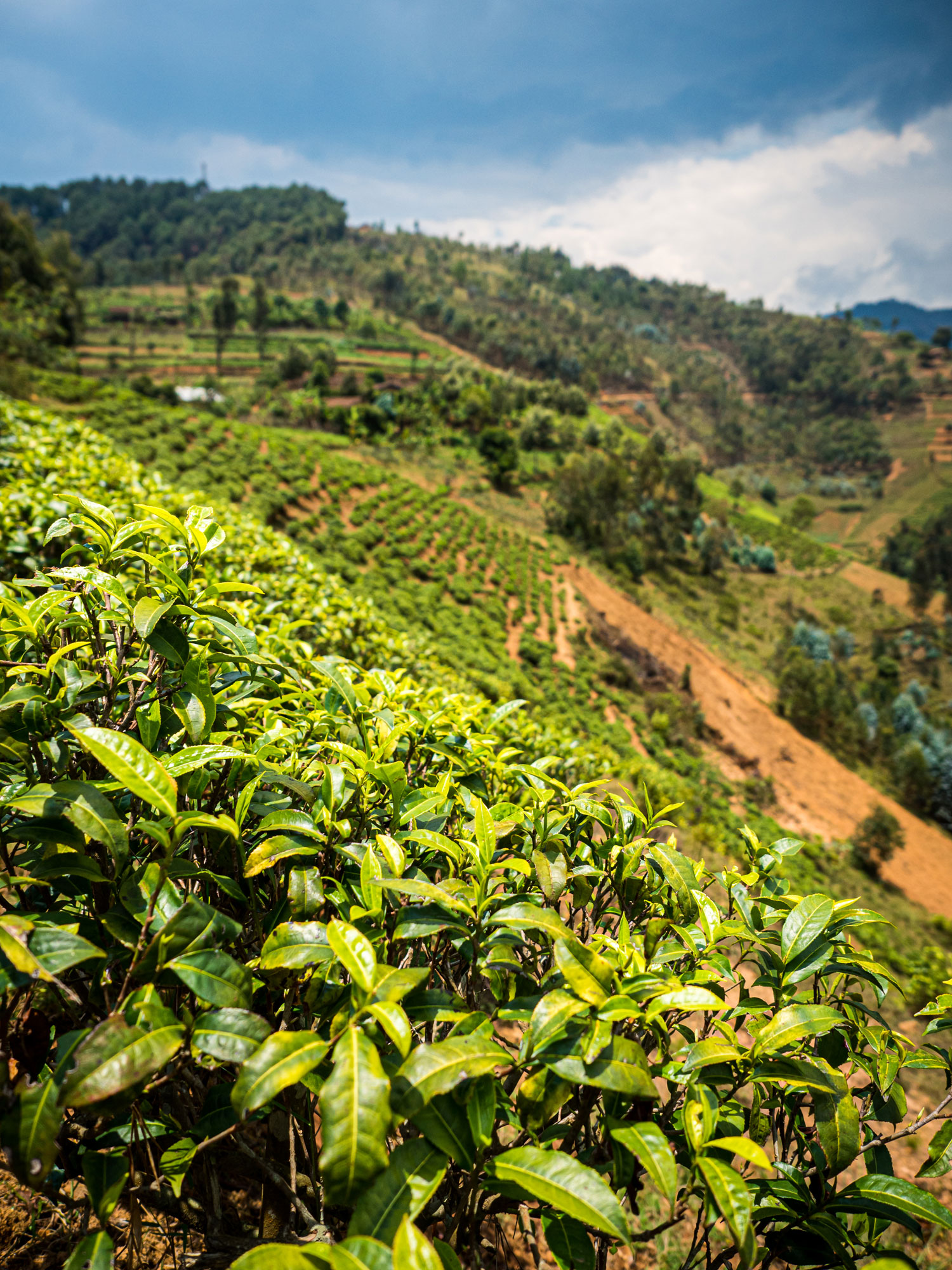
Originally, a tea project was planned
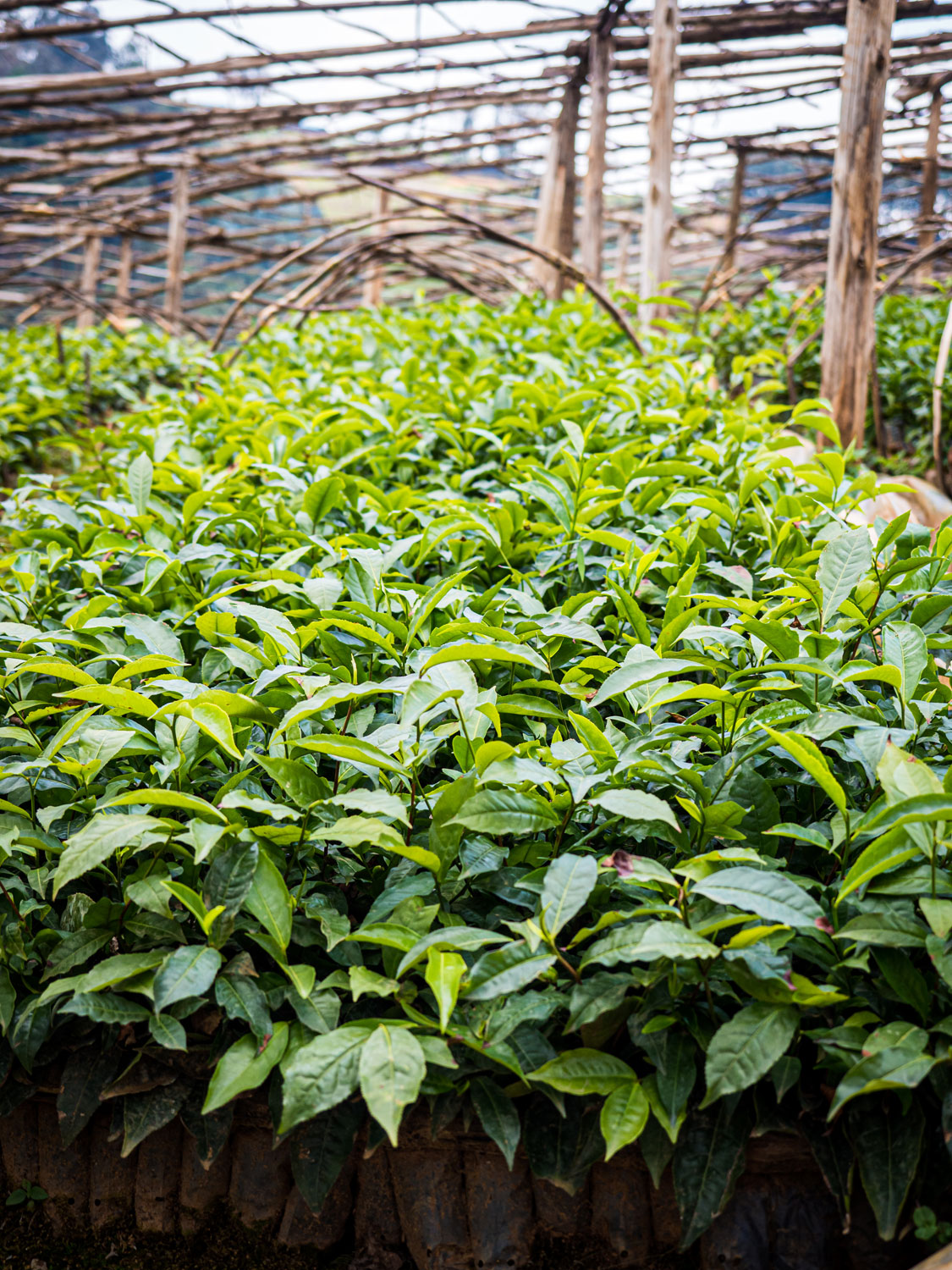
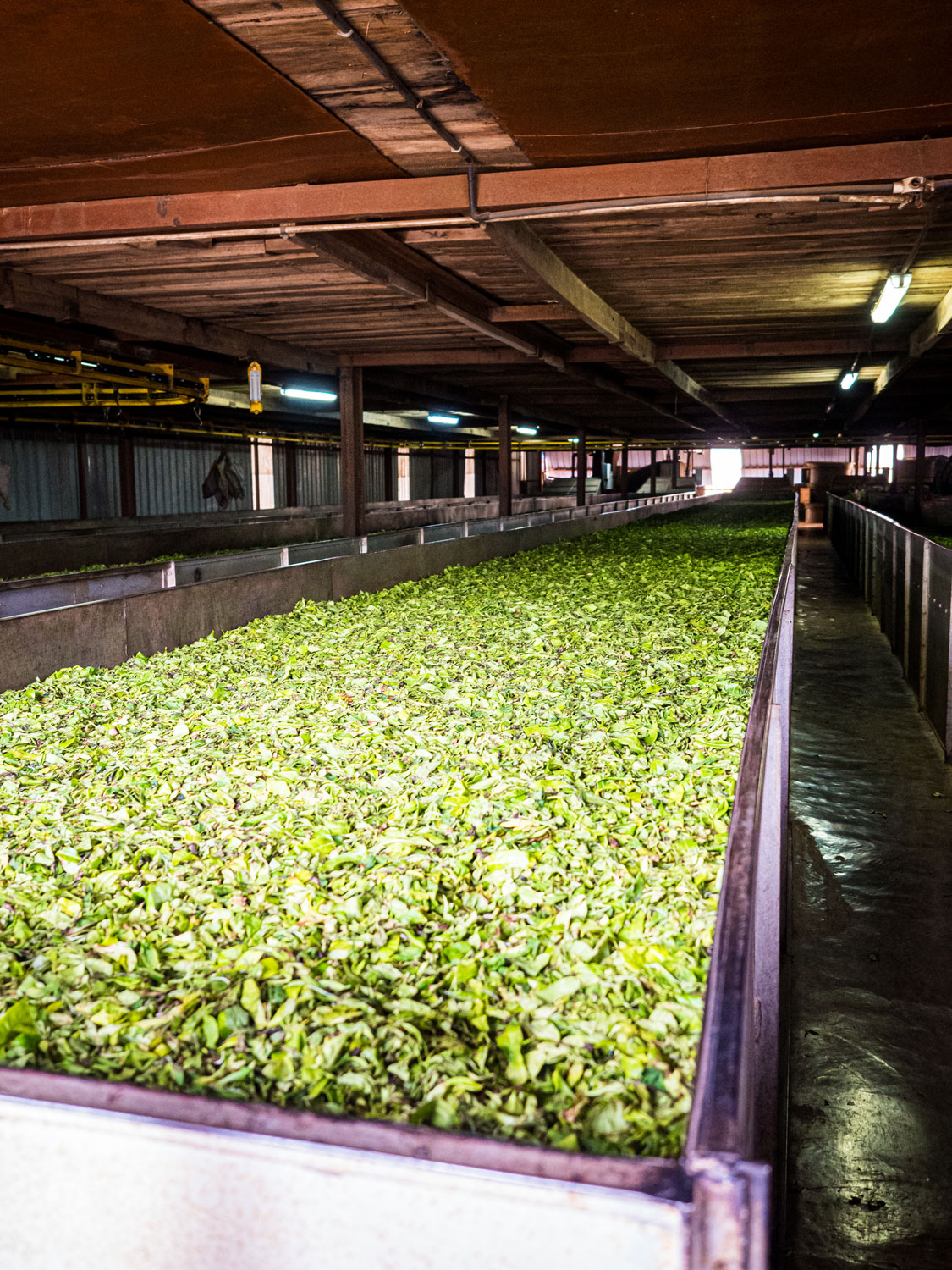
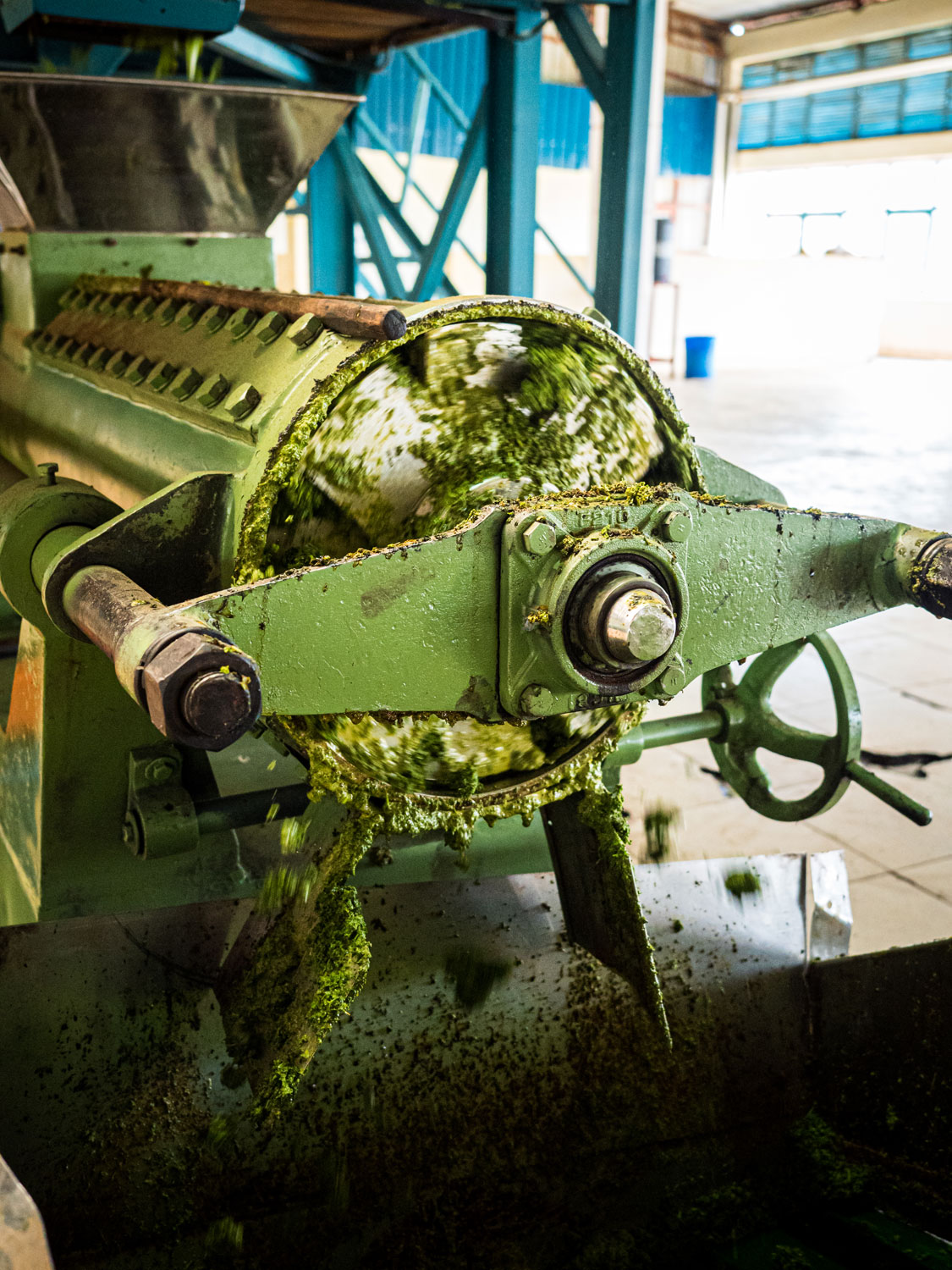
Impressive commitment for a high-quality product
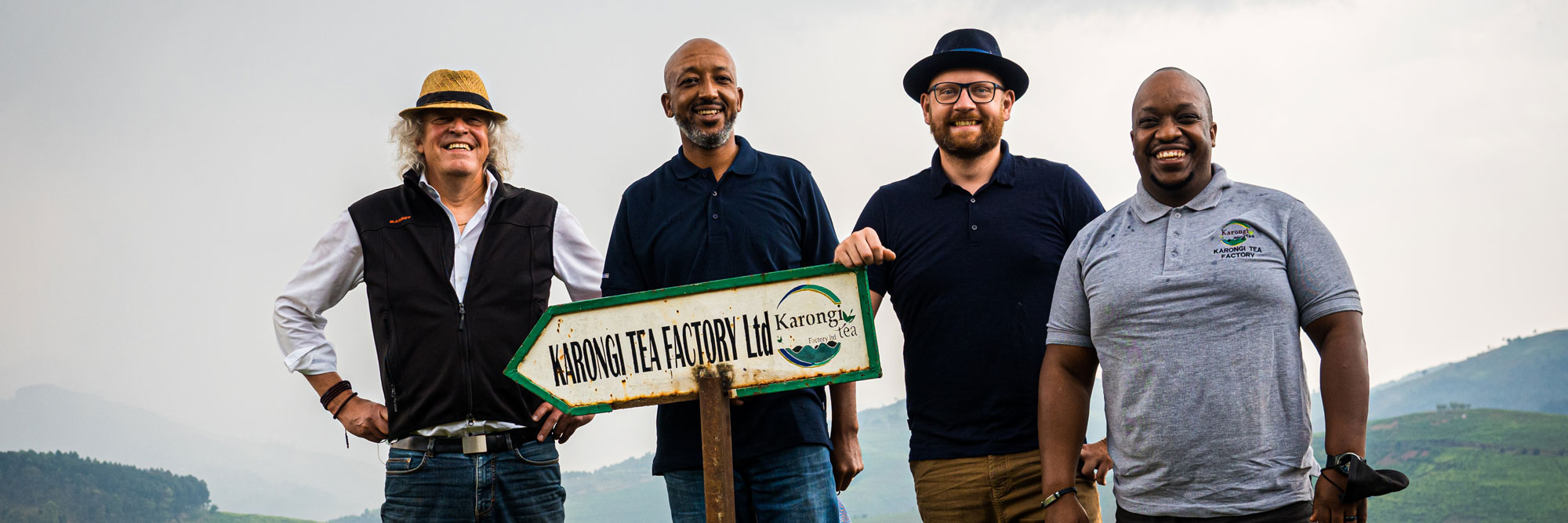
The environment also benefits: NABU reforestation project in Rwanda
The reforestation of the islands and slopes around the Rugezi Marsh, the most important tropical marsh in Rwanda, is a central building block for the protection of this area. It prevents further eutrophication of the marsh and makes an important contribution to climate and nature protection. The implementation of the project under the professional guidance of our partner Rwanda Wildlife Conservation Association by the local communities creates jobs and alternative income opportunities. With TeeGschwendner, we have a strong partner from the business world at our side, which makes it possible for us to implement this outstanding project for climate and nature protection.
Bisherige Erfolge beim NABU-Aufforstungsprojekt
Das Rugezi-Feuchtgebiet ist ein bedeutender Lebensraum für bedrohte Vogelarten – darunter der Grauhals-Kronenkranich. Dank TeeGschwendner konnte das Renaturierungsprojekt dort sowie in der Eastern Province maßgeblich vorangebracht werden.
Ergebnisse 2024/2025:
- 7.641 neue Bäume auf 16,3 Hektar degradiertem Land in der Eastern Province gepflanzt.
- 109 Gemeindemitglieder aktiv an der Renaturierung beteiligt – über 45 % Frauen.
- In Rugezi liegt die Überlebensrate der Setzlinge bei 88 %. Über 1.000 Bäume wurden aus Eigeninitiative nachgepflanzt.
- Aufbau von 8 Community Tree Champions, die sich dauerhaft um die Pflege kümmern.
Ein besonderes Highlight war der Anstieg der Kranichzahlen beim nationalen Zensus im August 2024: 1.293 Grauhals-Kronenkraniche wurden landesweit gezählt – ein ermutigender Indikator für die Wirksamkeit der Maßnahmen.
Ergebnisse Stand September 2024:
- Inseln und Flächen mit über 37.000 heimischen Bäumen bepflanzt und gepflegt
- Finanzielle Beteiligung und wirtschaftlicher Ausgleich für lokale Gemeinden
- Ausbildung von 5 „Champions“ für Messung und Dokumentation der Bäume
- Überlebensrate von 88% der Bäume
- Laufende Artenerfassungen zur Evaluierung des Naturschutzerfolgs
Ergebnisse Stand April 2024:
- In Miyove, Gicumbi-District, wurden 0,5 Hektar Land erworben, das Gebiet steht nun unter vollständigem Schutz und wird durch RWCA aufgeforstet.
- Es gab 2 große Pflanzaktionen, bei der 1.400 heimische Bäume gepflanzt wurden.
- 79 Gemeindemitgliedern konnte eine kurzfristige Anstellung gesichert werden, um bei der Aufforstung der Rugezi Marsh zu helfen.
- Erstmalig wurden wieder verwendbare Pflanztöpfe benutzt. Diese sind nicht nur umweltfreundlicher, sondern erlauben den Setzlingen auch, bessere Wurzeln zu bilden. So wachsen die Jungpflanzen besser im Boden an.
- Das Gebiet wird von 3 ausgebildeten Gemeindemitgliedern, sogenannten Conservation Champions, überwacht und gepflegt.
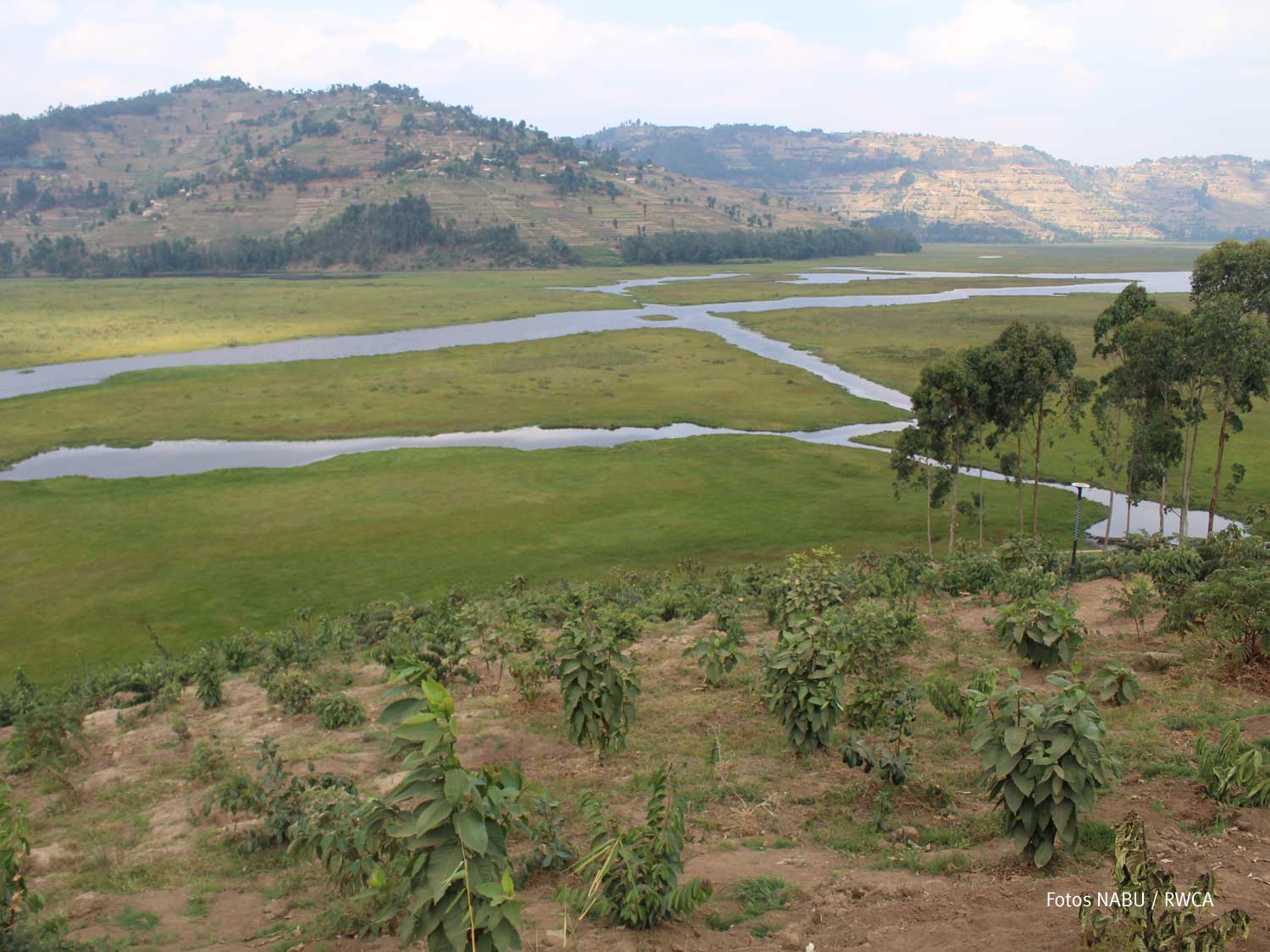
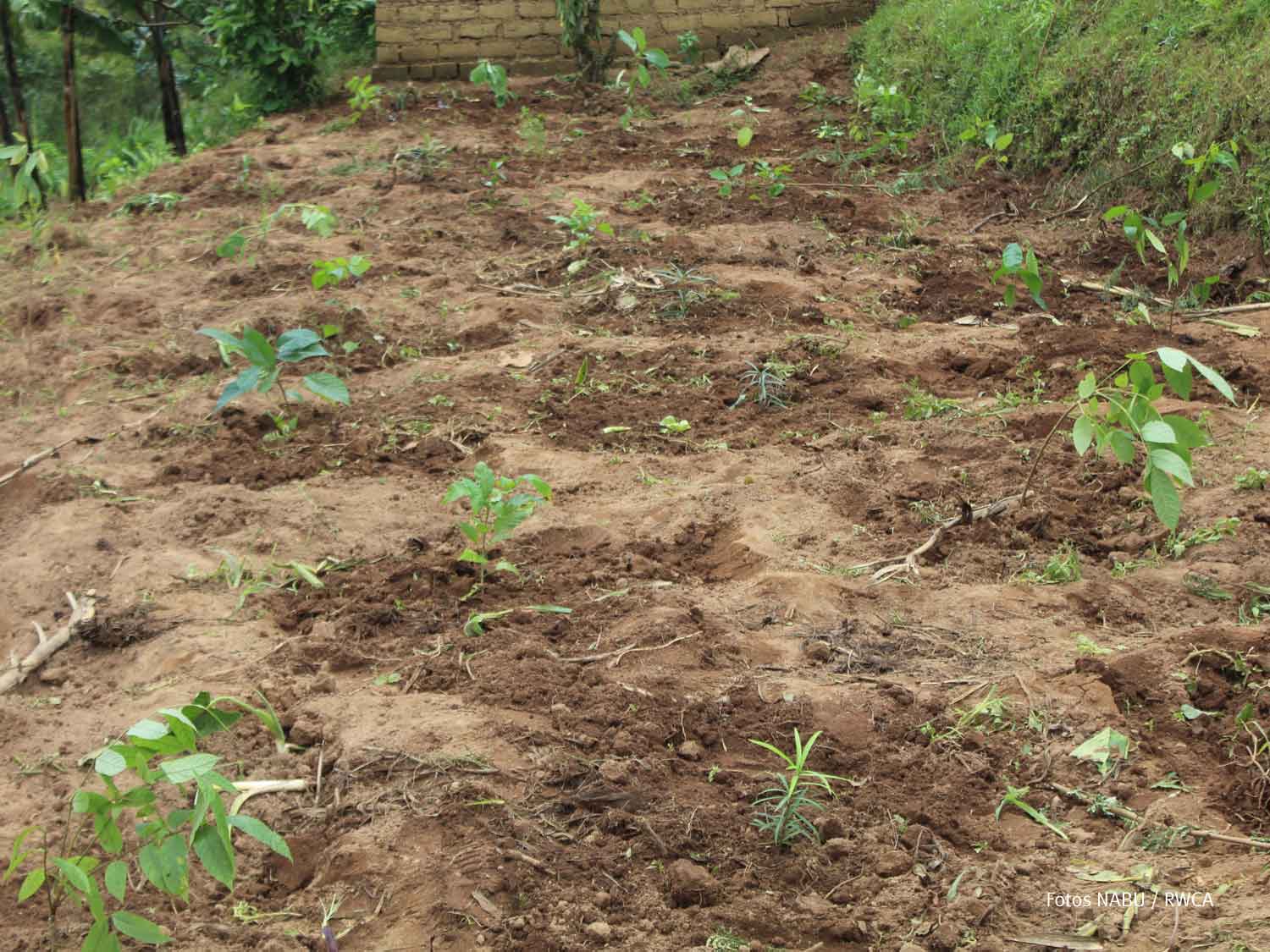
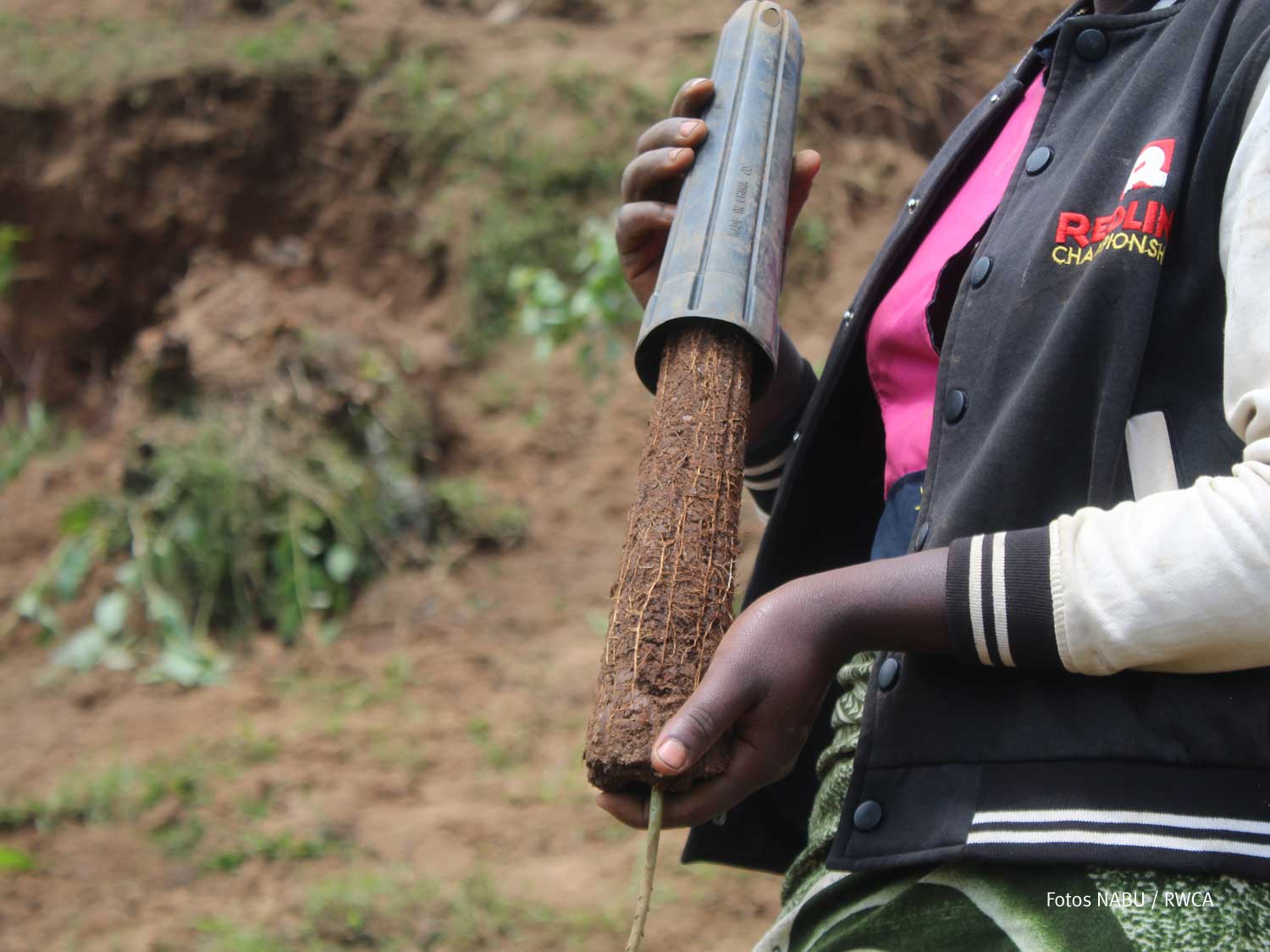
- In der Eastern Province wurden insgesamt 25 Hektar Land erworben.
- Invasive Arten wurden entfernt und durch heimische Pflanzen ersetzt. Diese Aktivität wird noch bis Ende des Jahres vervollständigt werden.
- Die Baumschule wurde erneuert, mit einem verbesserten Wassersystem versehen und auch hier wurden wiederverwendbare Pflanztöpfe eingeführt.
- In 2023 konnten 23.000 Setzlinge von insgesamt 20 verschiedenen Sorten aufgezogen werden.
- Nebenbei entstehen ein Best Practice Handbuch sowie ein Monitoring-Leitfaden, um die Baumschule zu einer der besten im Land zu entwickeln.




